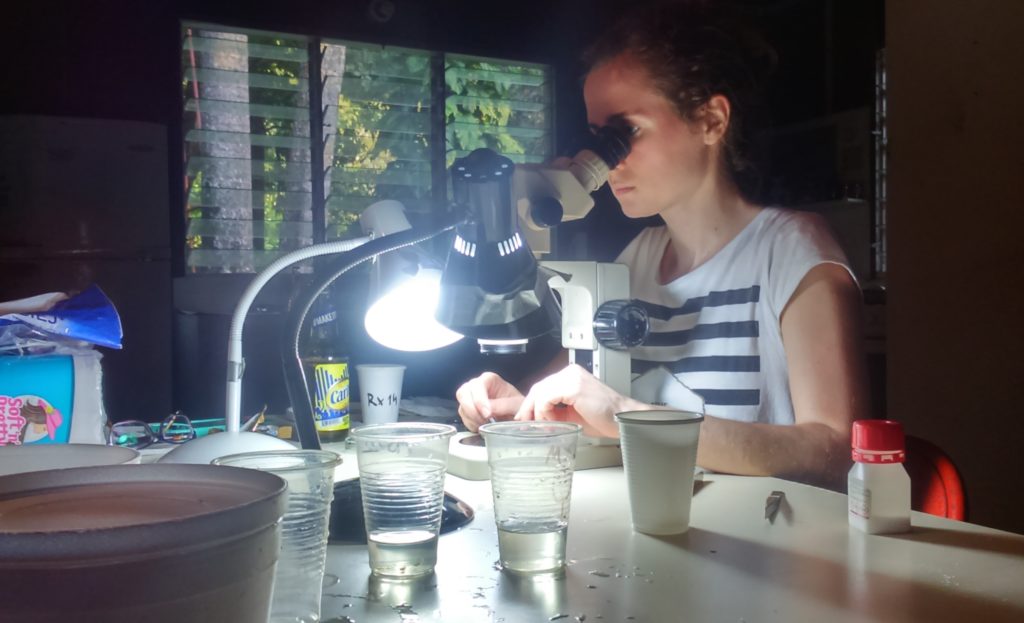
To understand the dynamics of host-pathogens coevolution and its epidemiological consequences, we need to know how new races of invasive parasites emerge. In our recent work, published in Molecular Ecology (Konczal et al. 2020, link), we shed some light on this process by analyzing whole genomes of Gyrodactylus turnbulli, ectoparasitic flukes infecting guppies. We showed that the expansion of a Gyrodactylus strain that have recently invaded Tobago island was preceded by a single event of hybridization between diverged genotypes. The resulting high heterozygosity was frozen by asexual reproduction, likely conferring evolutionary advantage by masking deleterious mutations accumulated in each of the founder strains. Thus our findings showed that single outcrossing event may be independently sufficient to increase expansion potential of a parasite, emphasizing that such processes can result in emergence of invasive pathogens, some of which may be of public health and conservation concern. The risk of such events is growing because human activities increase opportunities for hybridization by inducing environmental changes and incidental translocations.
